“What’s the best hearing aid?” As an audiologist, I’ve heard that question so many times. To successfully answer that question, perhaps the very first thing I need to do is modify it slightly: “What’s the best hearing aid for you?”
An important concept to keep in mind when exploring today’s vast array of options for hearing devices is that what’s right for you might not be right for someone else, and vice versa. The decision regarding which type of hearing instrument technology will sound and perform the very best will be largely dependent on you, your lifestyle, budget, and listening needs. These parameters tend to be highly variable from person to person, so let’s take a closer look.
Not all hearing losses can be correctly fit with the same style or type of device. This is very evident when fitting those with precipitous loss in the high frequencies. High frequency deficits are the most common configuration of hearing loss, and respond best to open fit technology. This type of device leaves your ear canal open, ensuring that the sound of your own voice is normal and pleasant. Conversely, fitting those with high frequency loss with conventional in-the-ear devices can have catastrophic results in terms of patient satisfaction. Have hearing instruments that you or your loved one are not using? It may be resultant from the units being the wrong style for the loss! High quality open-fit technology has been available for a relatively short period of time, and many of those whose instruments were purchased more than 5 years ago may not have had access to those devices.
What about some of the new fancy stuff, like Bluetooth technology? Is that for you? Many of my patients are not familiar with Bluetooth, but it can open up a world of ancillary devices and couplings for your hearing devices. For example, if you use Bluetooth-enabled hearing aids, you can wear a streamer around your neck and answer your cellphone hands-free through your hearing aids! With new cellphone use restrictions now in place in Montgomery, it can be a really handy feature. It’s also possible to listen to your TV or iPod directly through your hearing instruments with this technology, or use a special microphone to make conversations with your significant other in a noisy car or restaurant much easier. Other technologies to consider are remote controls, assistive listening devices like amplified phones or doorbell alerts, or FM devices to help with performance in a classroom or job environment. However, if you don’t want or need such technologies, don’t pay for them!
What kind of lifestyle do you have? If you are still working, it’s likely that you are in highly variable listening environments, or your profession demands auditory accuracy (and most jobs do!). Those who lead very active lifestyles need to consider today’s high-end technology, with plenty of noise reduction capability. On the other hand, if you’re retired, living alone, and seldom go to restaurants or parties, simpler, more basic noise reduction features will suffice — and cost less! If you are the type of person who wants the best of everything, then there are plenty of high-end technologies to wow you (and your friends and family). Don’t overbuy, but do be honest with your audiologist about your listening needs. If you aren’t, you may be disappointed with your hearing devices.
Finally, as self-serving as this might sound, perhaps the only honest and comprehensive answer to the question above is: “a hearing device recommended and provided by an exceptionally skilled and dedicated audiologist.” Sometimes that’s not the answer folks are looking for. I have patients tell me that it’s all about price, or they request a specific brand because a friend or relative was successful with a particular device. Hearing aids are a big investment with the potential for providing a big improvement in the quality of your life. People with hearing impairment need a competent and caring board certified audiologist who will go the extra mile to provide them with solutions custom-tailored to their own unique hearing loss and listening situations. As critical as the various aspects of technology may be to the hearing aid industry, it is ultimately the professional who is the decisive factor in guiding patients to satisfaction and benefit with hearing devices.
Note: Doctors Hearing Clinic was recently named Best of 2011 Hearing Healthcare Professionals by The Hearing Review, and Dr. Borton and her staff were the only clinic in Central Alabama to receive this award. This recognition was provided to only 165 hearing healthcare clinics across the U.S..

